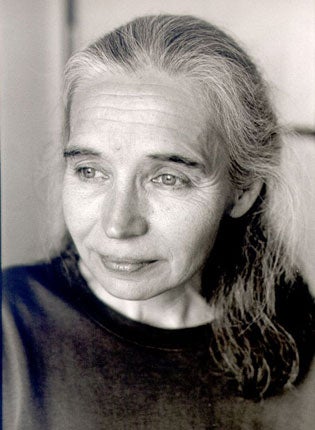Alison des Forges: Human-rights campaigner who warned the world of the impending genocide in Rwanda

Alison des Forges, the human-rights campaigner who was killed in the Continental Airlines crash outside Buffalo on 12 February, was arguably the most authoritative expert on the Rwanda genocide in the world. Des Forges, a historian by training, devoted her adult life and work to Rwanda, which was the subject of her doctoral thesis in 1972; she was one of the rare American specialists in the field.
She was a witness to history from the very moment of another plane crash, the one that would shape her career, which resulted in the death of the Rwandan and Burundi presidents as they touched down in Kigali and triggered the four-month killing spree that brought the former Tutsi rebel Paul Kagame to power. Months earlier, Des Forges had warned that mass killings were being prepared as the Hutu majority resisted a power-sharing deal signed in 1993 with the minority Tutsis. It was thanks to her efforts that the 1994 genocide of half a million Tutsis and moderate Hutus was chronicled in devastating detail and the guilt of the big powers on the UN security council exposed.
Des Forges graduated from Radcliffe College in Cambridge Massachusetts in 1964 and received her PhD from Yale. For 20 years, she was a senior adviser to Human Rights Watch on the Great Lakes region of central Africa. The executive director of Human Rights Watch, Kenneth Roth, said: “She was truly wonderful, the epitome of the human-rights activist – principled, dispassionate, committed to the truth and to using that truth to protect ordinary people. She was among the first to highlight the ethnic tensions that led to the genocide, and when it happened and the world stood by and watched, Alison did everything humanly possible to save people. Then she wrote the definitive account. There was no one who knew more and did more to document the genocide and to help bring the perpetrators to justice.”
Her award-winning Leave None to Tell the Story, published in 1999, contained 800 pages of forensic detail on the steady military build-up as the genocide was planned and the cries for help that were ignored by the UN peace-keeping department, the government of Belgium, and America, Britain and France on the security council. She said at the time: “The world has been saying for five years now that the Rwandan genocide was a terrible thing. But that’s not enough. We need to know how such killing campaigns work, if we hope ever to prevent them.” She was later called as an expert witness by the UN genocide tribunal for Rwanda and appeared at the trial of Rwandan nuns in Belgium and in trials in Switzerland, the Netherlands, and Canada.
But as her even-handed pursuit of justice and accountability turned the spotlight from the responsibility of the murderous Hutu militia to the conduct of Kagame’s Rwanda Patriotic Front, accused of the murder of 30,000 people during and just after the genocide, she came into conflict with the future president. Last year she was banned from the country after publishing a critical report on the failings of the justice system. Rwanda had lost a good friend.
She spent much time in the Great Lakes region, investigating the interlocking ethnic conflicts in Burundi and Democratic Republic of Congo. She was working on a Human Rights Watch report on Congo when she died.
Her last public appearance was in London on the eve of her death. She joined a Royal Commonwealth Society panel for a debate on Rwanda during which she said that despite the limits imposed on political debate in Rwanda, she would not argue against the former Belgian colony’s membership of the Commonwealth. “But I would say do it with your eyes open,” she told the audience.
The next day, she flew back to New York to connect with the Buffalo flight that killed her. She leaves behind her husband Roger, a professor of history and China expert at the University of Buffalo, a daughter and a son, and three grandchildren.
Anne Penketh
Alison Liebhafsky, human-rights campaigner, born Schenectady, New York 20 August 1942; married 1964 Roger des Forges (one son, one daughter); died Buffalo, New York 12 February 2009.
Subscribe to Independent Premium to bookmark this article
Want to bookmark your favourite articles and stories to read or reference later? Start your Independent Premium subscription today.

Join our commenting forum
Join thought-provoking conversations, follow other Independent readers and see their replies